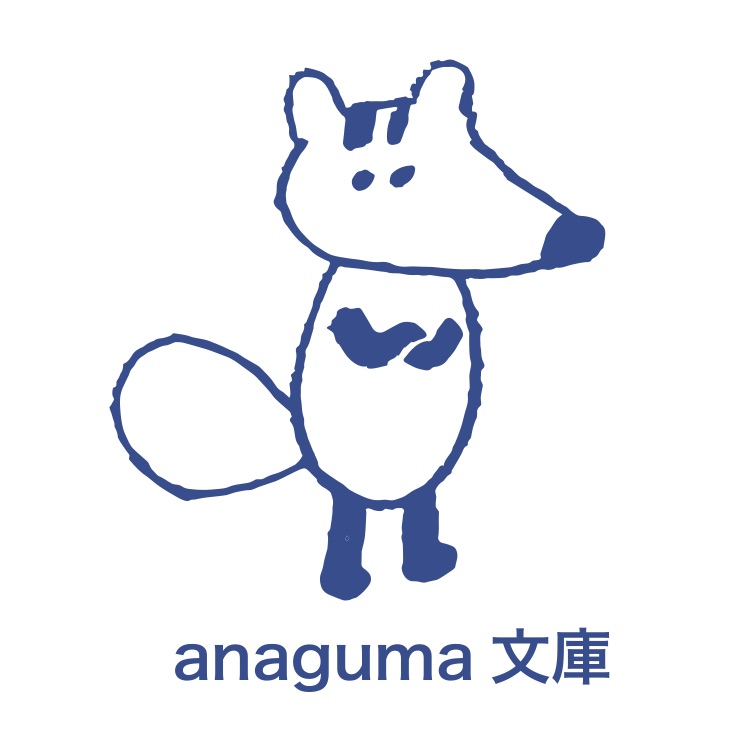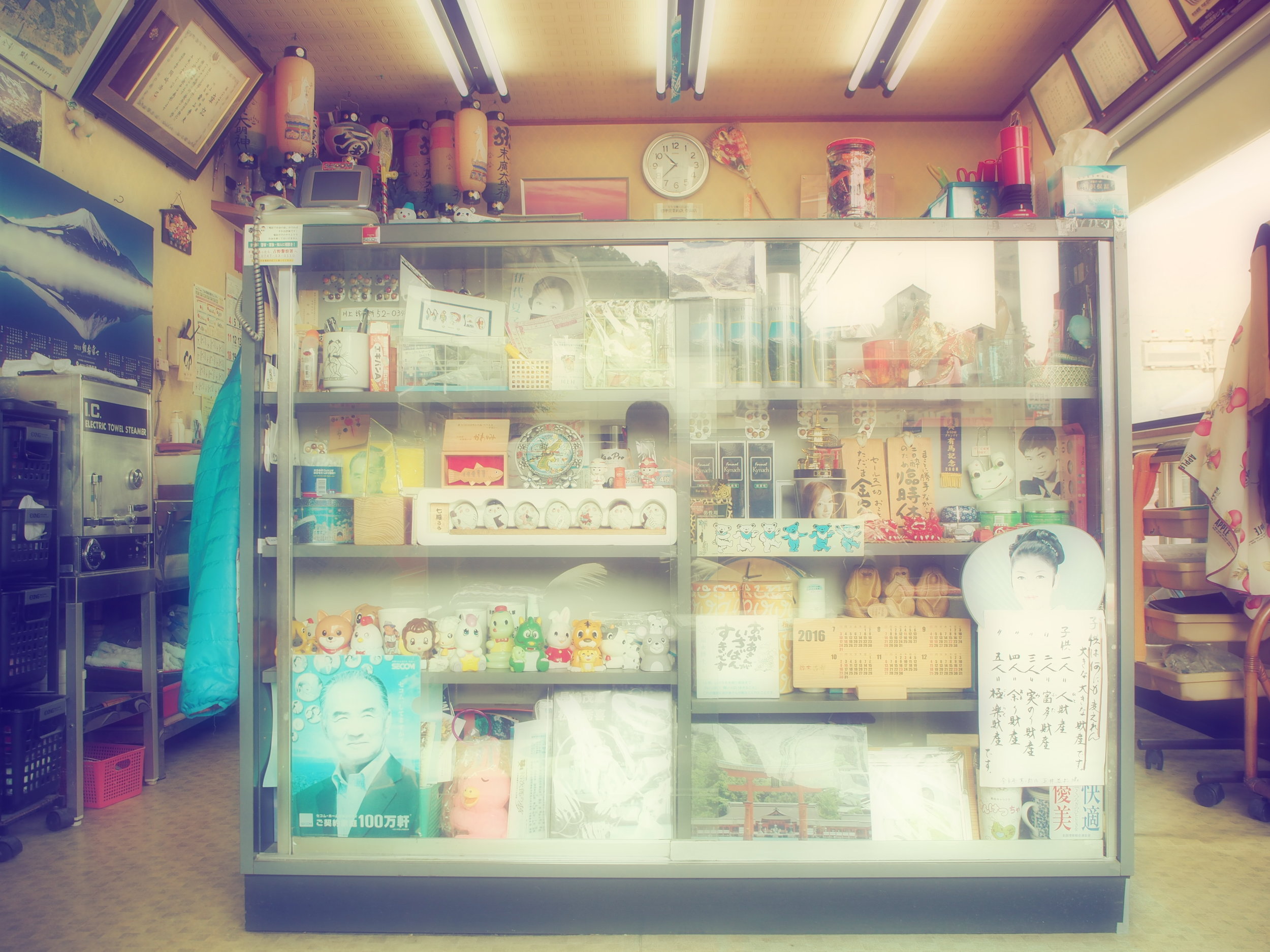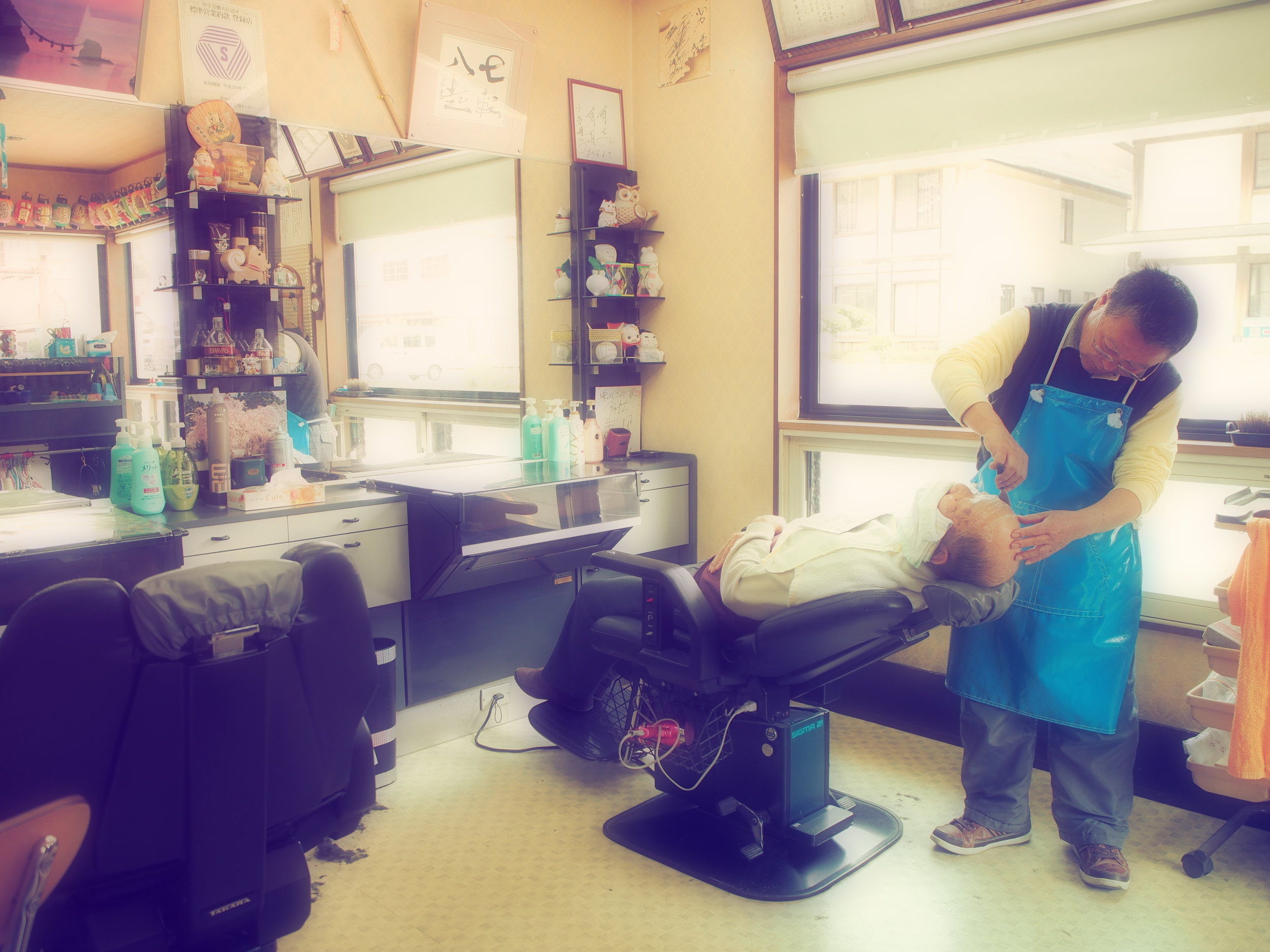(Please scroll down for the English version.)
バーバー栗山
バーバー栗山の話は長くて、遠いところから始まる。戦争の前に理容をしていたお父さんはサイパン島のバンザイ岬をロープで下り、海を泳いで行くと肩が撃たれ、米国兵に捕虜された。船で米国サンフランシスコまで渡り、ゴールデン・ゲート・ブリッジをくぐってから、シカゴで綿摘みをした。結局ハワイに移り、理容師が他にいなかったため、お父さんはそちらで二年ほど理容をした。解放されたら、川上村迫地区に帰り、鋏と木製のスツールだけで自分の床屋を開けた。何十年「バーバー栗山」のお店を続け、30年前に大滝ダムの建設に伴い、迫地区が山の上へ移った時、お店も上に移った。
現在、木製のツールではなく、本格的なバーバーチェアを使っているバーバー栗山は役場の手前に川上村の中心にある。お父さんからお店を継いだ栗山秀夫はその中心地を嬉しく思っている。「東川、柏木、入之波からはいろんな人が来るから、そんな話が聞ける。それは宝かな。」国道169号線を走りながら、お店の窓を通して、散髪しに来た常連さんやソファに座って話に来た村民さんがちらっと見える時が多い。みなさんは知り合いの健康、桜の調子、子供の学校や就職先を話す。僕はそれを聞いたら、アメリカの床屋と共通点がいっぱいあるような気がした。
お店だけではなく、栗山さん自身も迫地区と川上村で中心的な役割を果たしている。15年前、当時の村長に川上村消防団の団長の指名をもらい、140名の団員と一緒に川上村村民の生命と財産を山火事、民家の火事、台風などの災害から守っている。「夜寝る時、『ああ、何もなかった』と、朝起きたら、『今日は1日を平和に過ごさせてくれ。』そればっかりを狙う」。去年、迫地区の区長になり、区民の元気な笑顔を狙って働いている。
しかし、「団長」や「区長」になっても、栗山さんは謙虚をもってみなさんと接している。「怒られるのは怒られる。やっぱり十人十色で、いろんな人はおりますや。」と栗山さんは明るく言った。「昔はどこの区長でも『区長〜!』としとったのに、今は「はい、はい!」。まあ、それは世の中の流れかな。消防でもそんな気持ちでずっと『いつもすみません、すみません』と頭を下げとる。下から出とったら、エリックくん、一番ええで。」
バーバー栗山の壁に何枚のカレンダー、バス時刻表、演歌のポスターが貼ってある。地元の写真も何枚もある。栗山さんは大滝ダムの建設前の、元々の迫地区が写っている写真を見せてくださった。栗山さんは現在地を指してから、山火事がどこにあったか、丹生川上神社上社、役場、人の家などがどこにあったかを教えてくださった。一昨年川上村に来た僕は、人の話を聞いたり、写真を見たりして、大滝ダムの前の村を垣間見るしかない。
話が終わったら、僕はバーバーチェアに座り、散髪していただいた。頭の上が薄くなっている僕は横を短く、上を大切にするようにお願いした。当然かもしれないが、散髪していただきながら、栗山さんと話し続けた。相変わらず、素敵なことを仰った。
「この商売していてね、ありがたいのはお金をいただく時、『ありがとう』と言ってお金をくださる。ぼくたちが『ありがとう』と言わなければいけないのに。親父はよく言っていた、『ありがとうと言ってお金をくれるような商売ないぞ。』」
Barber Kuriyama
The story of Barber Kuriyama is long and begins in a far away place. Having studied to be a barber before being sent off to war, its founder was on the island of Saipan, and roped down Banzai Cliff to try to swim away in the ocean when he was shot in the shoulder and captured by US soldiers. They crossed the ocean on a boat to San Francisco, and after passing under the Golden Gate Bridge, he ended up picking cotton in Chicago. He was eventually transferred to Hawaii, where there were no other barbers, so he cut hair there for two years. After he was released, he returned home to the Sako district in Kawakami Village, and opened his own barber shop with just his scissors and a wooden stool. He continued running his shop for decades, and when the Sako district was relocated up the mountain due to the construction of the Otaki Dam thirty years ago, the shop moved up with it.
Now, with a real barber chair instead of a wooden stool, Barber Kuriyama is located at the heart of Kawakami Village, just in front of the village office. Having inherited the shop from his father, Hideo Kuriyama is very happy about its central location. “People come here from all over the village, Unogawa, Kashiwagi, Shionoha, so I can hear everything they have to say. I think that’s the treasure.” Driving down Nat. Hwy 169, I often glance through the window and see the regulars getting haircuts or residents sitting and chatting on the sofas. People discuss the health of acquaintances, the status of cherry blossoms, or the next school or company of local children. When I heard that, I felt like it has a lot in common with barber shops in America.
Not just the shop, but Mr. Kuriyama himself has a very central role in both Kawakami Village and the Sako district. Fifteen years ago, he was named by the mayor to be the Chief of the Kawakami Village Volunteer Fire Department, and along with 140 volunteer firefighters, is working to protect the lives and properties of Kawakami Village from forest fires, home fires, typhoons, and other disasters. “When I go to sleep at night, I say, ‘Ahh, nothing happened today.’, and when I wake up in the morning, I say, ‘Please let us get through this day in peace.’ That’s all I ask.” Last year, he also became the District Manager for the Sako district, and is working to see a healthy smile on the faces of his residents.
However, even after becoming fire chief and district manager, he maintains his humility when interacting with people. “Some people do get angry with me. As expected, ten people will give you ten different opinions, there’s a good variety,” he says with a bright smile. “Back in the day, any district manager was highly regarded like ‘Oh, the district manager!’, but now I respond, ‘Yes sir, Yes ma’am’. Well, that’s just the way the world goes I guess. Even in the fire department, I am always bowing my head and saying, ‘Excuse me, sorry.’ You know, Eric, it’s best to make your way up from down below.”
There are numerous calendars, a bus schedule, and an Enka poster on the walls of Barber Kuriyama. There are also many local photos. Mr. Kuriyama showed me a photo of the original Sako district before the construction of the Otaki Dam. He pointed to our current location, and told me where they had a forest fire, and where things like Niu Kawakami Shrine Kamisha, the village office, and people’s houses used to be. As I just came here two years ago, all I can do is hear people’s stories and see photos to catch a glimpse of what the village was like before the Otaki Dam.
When we finished talking, I sat in the barber chair and received a hair cut. Since the top of my head is a little thin, I asked him to go short on the sides and be careful up top. It might go without saying, but we continued the chat as he cut my hair. As usual, he said something beautiful.
“The thing I’m most grateful about with this business is, even though I’m receiving the money, everyone says, ‘Thank you’ and pays me. But, since I’m the one getting paid, I’m the one who should have to say ‘Thank you’. My father always said that, ‘There aren’t any businesses where people both pay you and say thank you.’”




